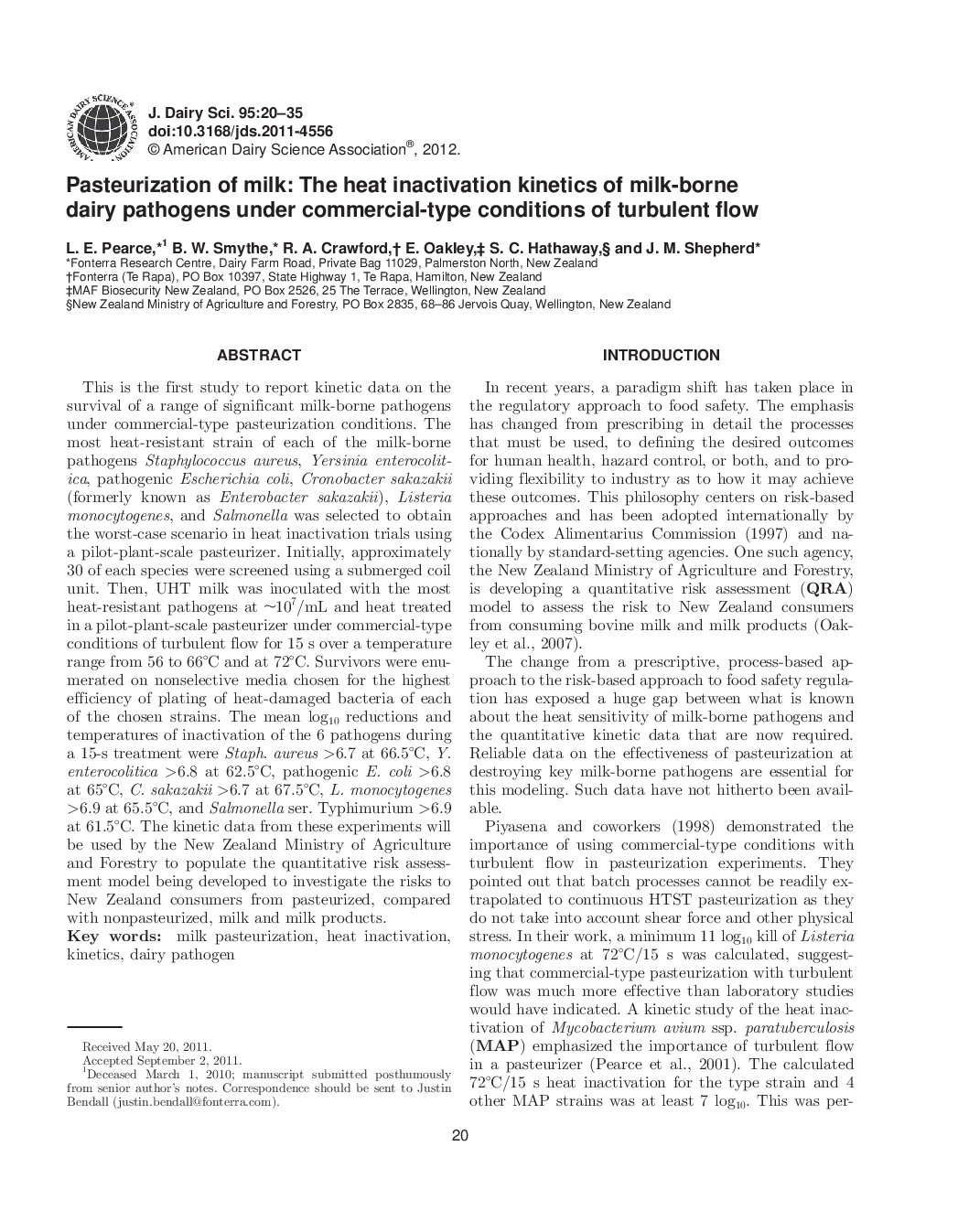| Article ID | Journal | Published Year | Pages | File Type |
|---|---|---|---|---|
| 10977101 | Journal of Dairy Science | 2012 | 16 Pages |
Abstract
This is the first study to report kinetic data on the survival of a range of significant milk-borne pathogens under commercial-type pasteurization conditions. The most heat-resistant strain of each of the milk-borne pathogens Staphylococcus aureus, Yersinia enterocolitica, pathogenic Escherichia coli, Cronobacter sakazakii (formerly known as Enterobacter sakazakii), Listeria monocytogenes, and Salmonella was selected to obtain the worst-case scenario in heat inactivation trials using a pilot-plant-scale pasteurizer. Initially, approximately 30 of each species were screened using a submerged coil unit. Then, UHT milk was inoculated with the most heat-resistant pathogens at â¼107/mL and heat treated in a pilot-plant-scale pasteurizer under commercial-type conditions of turbulent flow for 15 s over a temperature range from 56 to 66°C and at 72°C. Survivors were enumerated on nonselective media chosen for the highest efficiency of plating of heat-damaged bacteria of each of the chosen strains. The mean log10 reductions and temperatures of inactivation of the 6 pathogens during a 15-s treatment were Staph. aureus >6.7 at 66.5°C, Y. enterocolitica >6.8 at 62.5°C, pathogenic E. coli >6.8 at 65°C, C. sakazakii >6.7 at 67.5°C, L. monocytogenes >6.9 at 65.5°C, and Salmonella ser. Typhimurium >6.9 at 61.5°C. The kinetic data from these experiments will be used by the New Zealand Ministry of Agriculture and Forestry to populate the quantitative risk assessment model being developed to investigate the risks to New Zealand consumers from pasteurized, compared with nonpasteurized, milk and milk products.
Related Topics
Life Sciences
Agricultural and Biological Sciences
Animal Science and Zoology
Authors
L.E. Pearce, B.W. Smythe, R.A. Crawford, E. Oakley, S.C. Hathaway, J.M. Shepherd,
